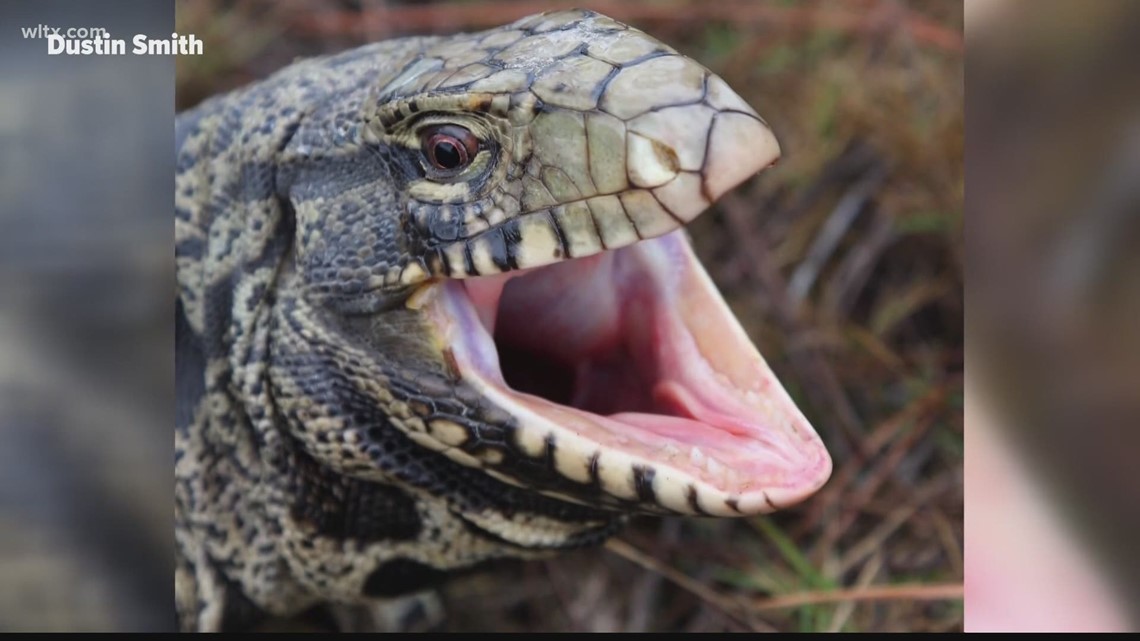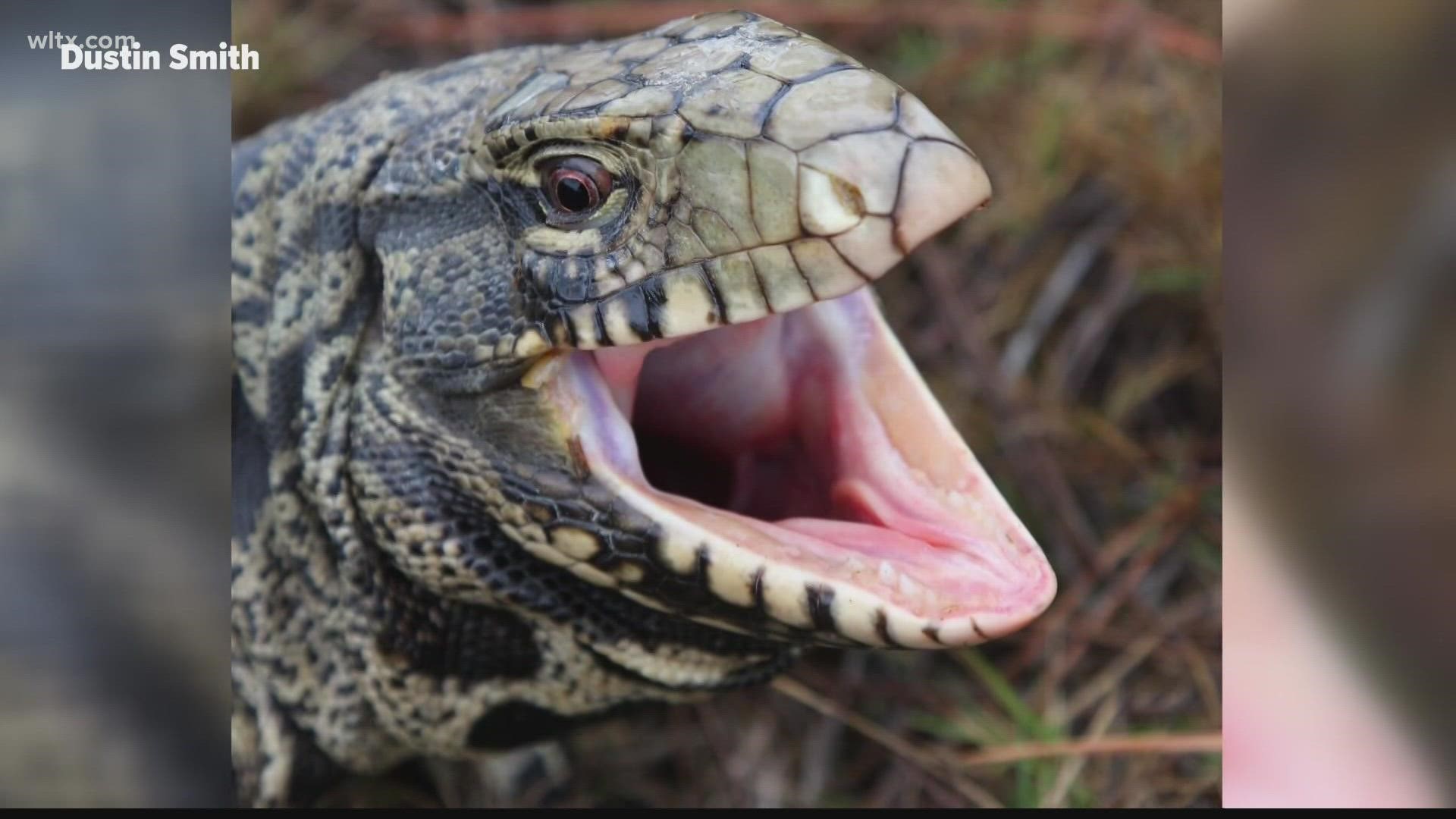COLUMBIA, S.C. — The South Carolina Department of Natural Resources (SCDNR) continues to receive reports of wild and free-ranging, non-native black and white tegus and has confirmed 13 sightings since the initial report from Lexington County in August of 2020.
Black and white tegus have been observed throughout the state, including in Greenville, Pickens, Darlington, Orangeburg, Berkeley, Richland and Lexington counties.
More than half of these sightings have come from the Columbia area.
RELATED: 'Voracious' invasive lizard species found in Georgia should be 'shot on sight,' wildlife group says


Last week, two tegus were reported in Lexington and Richland counties. Including these, nine tegus have been successfully removed from the wild.
Due to the establishment of black and white tegus in Georgia and Florida, and the potential negative impacts they could have on native ground-nesting birds like turkey and quail, as well as other species such as the state-endangered gopher tortoise, black and white tegus and their hybrids were added to the list of “Restricted Non-native Wildlife” on May 28, 2021.
These regulations prohibit tegus and their hybrids from being brought into South Carolina or reproduced here, and also require current owners to register all black and white tegus and hybrids with SCDNR by September 25, 2021. After this date, no unregistered black and white tegu may be possessed, and no tegu may be bought, sold or transferred in the state.
SCDNR officials say they appreciate the continued willingness of South Carolinians to provide information to protect native wildlife and prevent the establishment of non-native species, like black and white tegus.
SCDNR continues to investigate all reports and asks that any sightings be reported to SCDNR biologist Andrew Grosse, grossea@dnr.sc.gov.
Sightings can also be reported online. Whenever possible, please submit a photo, location, and time and date the animal was seen.
As a non-native species, tegus in South Carolina are not protected by state wildlife laws or regulations and should be removed from the wild.

